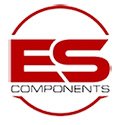ES Components Mfg
Good-Ark Semiconductor
IceMOS Technology
Knowles
LS Materials
Microchip
Microsemi
Semicoa
Semikron
Sensitron Semiconductor
Siliconix Hermetic
SimpleChips Technology
SiTime
Skyworks Defense & Space
Vishay
Vishay VPG Alpha
VPT Components
Zetex
Line Card
JAN / JANTX / JANTXV / JANS / JANSR
All Products By Category
Capacitors
Diodes
Energy
High Frequency
Inductors / Magnetics
IC's
MEMS (Oscillators)
MOSFETs / JFETs
Optoelectronics
Resistors
Substrates & Interconnects
Transistors



